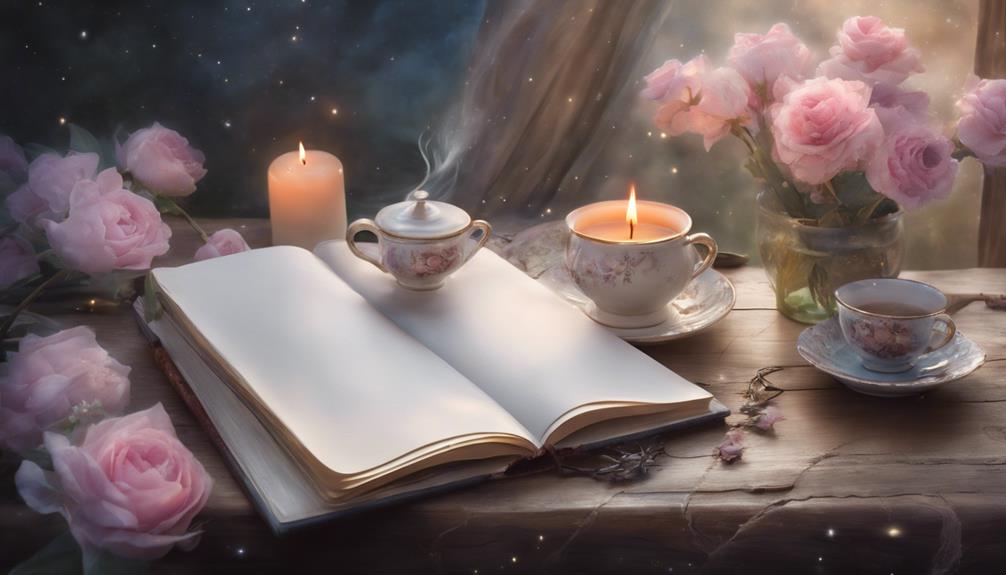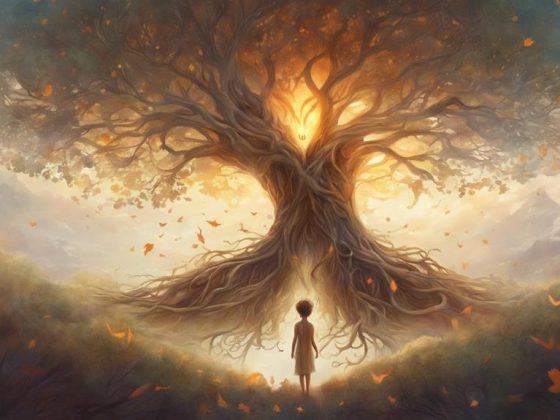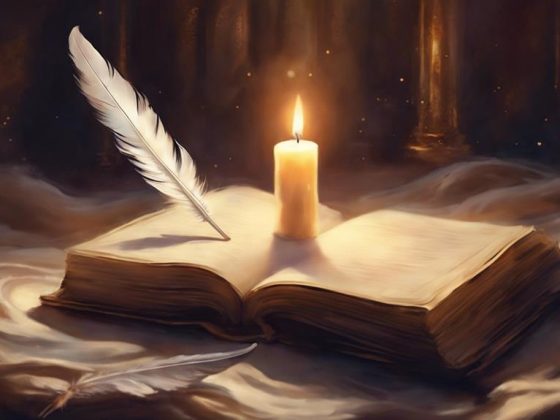Isn't it serendipitous that you've stumbled upon these journal prompts at a time when you're seeking healing from complex PTSD?
You're about to embark on a journey that not only acknowledges the pain and challenges you've faced but also paves the way for a transformative healing process.
Through reflecting on triggers, envisioning your future self, and learning the art of forgiveness, you'll find these prompts guide you in exploring the depths of your experiences.
Each entry serves as a stepping stone toward recovery, inviting you to confront and embrace your inner turmoil. Curiosity may just lead you to uncovering a stronger, more resilient version of yourself.
Reflecting on Triggers

Understanding your triggers is the first step toward managing your responses and mitigating the impact of complex PTSD on your daily life. It's crucial you dive deep into what specifically sets off your stress or panic. These triggers can be anything from certain words, smells, places, or even people that somehow connect back to traumatic events from your past.
When you start reflecting on your triggers through journaling, you're not just listing them down; you're taking a moment to understand their origins and how they affect you. This process allows you to recognize patterns in your reactions, which is essential for developing coping strategies that work for you. You'll begin to notice that some triggers have a more significant impact than others, and this insight is invaluable.
Rediscovering Safe Spaces
After reflecting on your triggers, it's essential to identify and cultivate your safe spaces, places where you feel secure and grounded. These are areas or environments where your guard can be lowered, and you can truly relax, heal, and find peace. It's about creating a sanctuary that supports your recovery journey and allows you to reconnect with yourself on a deeper level.
To make this concept more tangible, consider the following:
- A cozy corner of your home filled with items that bring you joy, such as soft blankets, your favorite books, or soothing music.
- A nature spot outdoors where you feel connected to the earth, like a quiet park, a serene beach, or a tranquil garden.
- A community space where you feel supported and understood, perhaps a support group meeting room or a friend's living room.
- A personal hobby or activity area where you can engage in things you love doing, from painting and writing to yoga or meditation.
Creating and maintaining these safe spaces can significantly impact your recovery process, offering you refuge and comfort as you navigate the complexities of healing from Complex PTSD.
Unpacking Emotional Responses

Delving into your emotional responses is a crucial step in healing from Complex PTSD, as it allows you to recognize and process feelings that have long influenced your behavior and perceptions. It's about acknowledging the depth of your emotions without judgment. You're learning to understand why certain situations trigger intense feelings and how these reactions connect to past trauma.
Start by identifying the emotions you experience in response to specific triggers. Are you feeling anger, sadness, fear, or perhaps a mix of these? Write them down. Don't shy away from exploring the roots of these emotions. What memories or experiences are they tied to? This isn't easy and might stir up discomfort, but it's a necessary part of your journey towards recovery.
Reflecting on these emotions, consider how they've shaped your interactions and decisions. Have they led you to avoid certain situations or people? Understanding these patterns is key to breaking free from them.
Envisioning a Future Self
Imagine yourself in a future where you've overcome the challenges of Complex PTSD and consider what that might look like for you. It's a place where the weight of your past doesn't determine the lightness of your present or the brightness of your future. This vision isn't just a dream; it's a potential reality that starts with understanding and envisioning who you can become.
To deepen your understanding and connection to this future self, consider these prompts:
- *What daily habits does your future self practice that support well-being and resilience?*
- *How does your future self handle moments of stress or triggers differently?*
- *Imagine a conversation with someone from your past. How does your future self navigate this with strength and clarity?*
- *Visualize a challenging situation. What resources and strategies does your future self draw upon to remain centered and grounded?*
These prompts aren't just exercises in creativity; they're stepping stones on your path to recovery. By envisioning your future self, you're not only acknowledging the possibility of healing but actively participating in creating a blueprint for your journey forward.
Gratitude in the Midst of Struggle

Finding gratitude during your struggle with Complex PTSD can illuminate moments of strength and growth amidst the challenges. It's not about dismissing your pain but recognizing the resilience and small victories that exist even on tough days.
You might wonder, 'How can I find gratitude in such turmoil?' Start by acknowledging any progress, no matter how minor it seems. Did you manage to get out of bed, make a meal, or simply breathe through a moment of panic? Those are victories.
Gratitude can also come from the world around you. Maybe it's the warmth of the sun on your skin, the comfort of a beloved pet, or a kind word from a stranger. These moments, when appreciated, can serve as reminders that beauty and kindness persist, even when it feels like you're enveloped in darkness.
Journaling about these instances can significantly impact your perspective. Try writing down three things you're grateful for each day. They don't have to be monumental; sometimes, it's the smallest things that hold the most meaning. This practice can help shift your focus from what's wrong to what's right, fostering a sense of hope and resilience that's crucial for recovery.
The Impact of Relationships
How do your relationships affect your journey through Complex PTSD recovery? It's crucial to recognize that the people around you can significantly impact your healing process. Whether it's friends, family, or partners, the nature of these relationships can either aid your recovery or present obstacles.
Through journaling about the dynamics of your relationships, you'll gain insights into how they influence your emotional well-being and recovery progress.
Consider exploring these aspects in your journal:
- The role of trust: How easy or challenging is it to trust others, and how does this impact your relationships?
- Support systems: Identify who truly supports your recovery journey and how they do so.
- Boundaries: Reflect on whether your relationships respect your boundaries or if they often feel violated.
- Communication: How open are you able to be about your experiences with Complex PTSD, and how do others respond?
Moments of Joy and Sorrow

Exploring the dynamics of your relationships can significantly illuminate how they influence your healing, yet it's equally important to reflect on the moments of joy and sorrow that define your journey through Complex PTSD recovery.
Joy and sorrow are two sides of the same coin in your emotional landscape. They offer you profound insights into your resilience and vulnerability. When you're navigating the ups and downs of recovery, acknowledging your moments of joy—no matter how fleeting—can be a powerful tool. It reminds you of the light that shines through even on your darkest days. Consider the last time you felt a genuine moment of happiness. What were you doing? Who were you with? How can you invite more of these moments into your life?
Conversely, facing your sorrow is equally critical. It's easy to shy away from the pain, but confronting it head-on allows you to process and move forward. Reflect on a recent moment of sorrow. What triggered it? How did you cope? Understanding these patterns can help you navigate your emotions more effectively, creating a pathway to healing that honors both your joy and your sorrow.
Boundaries and Self-Care
Establishing boundaries and prioritizing self-care are essential steps in your Complex PTSD recovery journey. It's not just about creating a safe space around you; it's also about honoring your needs and recognizing your worth. By focusing on boundaries and self-care, you're taking powerful strides toward healing and reclaiming your power.
Consider these journal prompts to deepen your understanding and commitment to these crucial areas:
- Reflect on a time when you felt your boundaries were respected. How did it make you feel? What did it teach you about the importance of boundaries in your relationships?
- Identify one self-care activity that makes you feel rejuvenated. Why does this particular activity resonate with you, and how can you incorporate it more into your daily routine?
- Think about a situation where you struggled to maintain your boundaries. What were the challenges? How can you approach similar situations differently in the future?
- Explore the connection between self-care and your recovery journey. How does taking care of yourself influence your feelings of safety and empowerment?
Lessons From the Past

Reflecting on past experiences can unveil invaluable lessons that significantly aid in your Complex PTSD recovery process. When you look back, it's not about dwelling on the pain or the what-ifs. It's about recognizing the strength you've shown and the resilience you've built. Start by asking yourself what these experiences have taught you about your boundaries, your values, and your capacity for resilience.
Consider how overcoming these challenges has shaped your understanding of yourself and the world around you. What've you learned about trust, both in yourself and in others? How have these lessons influenced your current relationships and your approach to new ones?
It's also essential to recognize the coping strategies you've developed, evaluating which ones serve you well and which ones you might want to adjust. This reflection can help you refine your approach to stress and conflict, ensuring you're applying the healthiest strategies available to you.
Journaling about these insights can solidify your understanding and appreciation of your journey. It's a way to acknowledge your progress, no matter how small it may seem. Each lesson from the past is a stepping stone towards a more resilient and empowered you.
Forgiving and Letting Go
Forgiving yourself and others is a crucial step in the journey toward healing from Complex PTSD. It's not just about letting go of past hurts; it's a profound process that unlocks the door to personal growth and freedom. But, forgiveness can feel like a tall order when you're carrying the weight of complex trauma. It's not about forgetting what happened or excusing harmful actions. Rather, it's about releasing the hold these experiences have on your heart and mind.
To dive deeper into this transformative process, consider exploring these journal prompts:
- *Reflect on a situation where you feel wronged. Describe it, then write a letter of forgiveness to the person involved, even if you never send it.*
- *Think about a mistake you can't seem to forgive yourself for. Write about how this guilt serves you and imagine what letting it go might look like.*
- *List down the emotions you feel when you think about forgiveness. Are there patterns or surprises?*
- *Visualize a future where you've forgiven those who hurt you and yourself. How does your life differ in this scenario?*
Forgiving and letting go isn't easy, but it's a powerful step towards healing and reclaiming your life from the shadows of Complex PTSD.
Conclusion
You've embarked on a transformative journey, delving into your deepest emotions and experiences. Through these prompts, you're not only confronting your triggers but also rediscovering your safe havens, setting boundaries, and fostering self-care.
Remember, healing from complex PTSD is a process, and every word you pen down is a step towards a brighter, more resilient future. Keep embracing your moments of joy and sorrow, and let gratitude guide you.
You're not alone, and you're incredibly strong.




